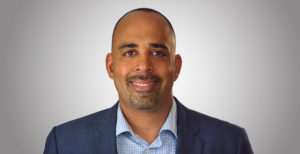David Walfish
Project Overview
Their islands battered by climate change–induced rising seas, many in American Samoa and the Marshall Islands are leaving their home nations at some of the highest emigration rates in the world. Often, they move to Hawaii, where they frequently have trouble finding jobs, and, like native Hawaiians, face the highest food prices in the U.S. Unable to afford healthy foods, these two demographic groups rely on high-calorie processed foods, contributing to the worst health profile of any U.S. ethnicity. Seeking a win-win solution that can provide income for farmers and healthy, affordable food for Hawaiians, Ho‘oulu Pacific has developed a “distributed agriculture” model that uses small, household farms to grow fish and vegetables in aquaponic systems, then redistributes that food to local communities. Six times more productive than traditional farming while using 98% less water, the group’s prototypes have already produced 50 types of fresh produce and fish, yielding all of the servings of fish and vegetables that a family needs plus significant surplus. Ultimately, Ho‘oulu Pacific aspires to expand to other U.S. Pacific Island territories, giving immigrants from climate-threatened islands a fresh opportunity to stay healthy and at home.
Five Questions
Learn more about this project
Meet our other 2017 awardees

Western North Carolina
Connecting cultural heritage, youth retention, and economic revival, The Industrial Commons helps small to mid-size manufacturers convert to worker-ownership.

Washington, D.C. and San Diego, CA
Seeking to restore imperiled coral reefs, Coral Vita is leveraging for-profit tools to build a network of high-tech coral farms.

Washington, D.C.
Rising Tides brings expertise on climate adaptation and cultural heritage directly to vulnerable communities to save America’s histories, traditions, and cultures.

California
Seeking to reimagine the legal profession, Esq. Apprentice creates a no-cost pipeline for low-income youth of color to become fully licensed attorneys.

Neighborhood Opportunity and Accountability Board (NOAB)
California
A neighborhood-led model for youth justice seeks to re-route resources spent on locking youth up, and instead invest in young people and their communities.

Swapna Reddy &Elizabeth Willis
Asylum Seeker Advocacy Project (ASAP)
New York
ASAP offers a model for “lawyering in a crisis” by crowdsourcing short-term volunteers to provide rapid legal services to asylum-seeking families.

California
Through the nation’s first farm labor trust, immigrant farmworkers are reaping the benefits of worker-ownership while strengthening America’s food economy.

Texas
Jolt is pioneering a Latino youth-led movement across Texas to fight for stronger immigrant protections and rewrite the immigration narrative.

 Learn More
Learn More